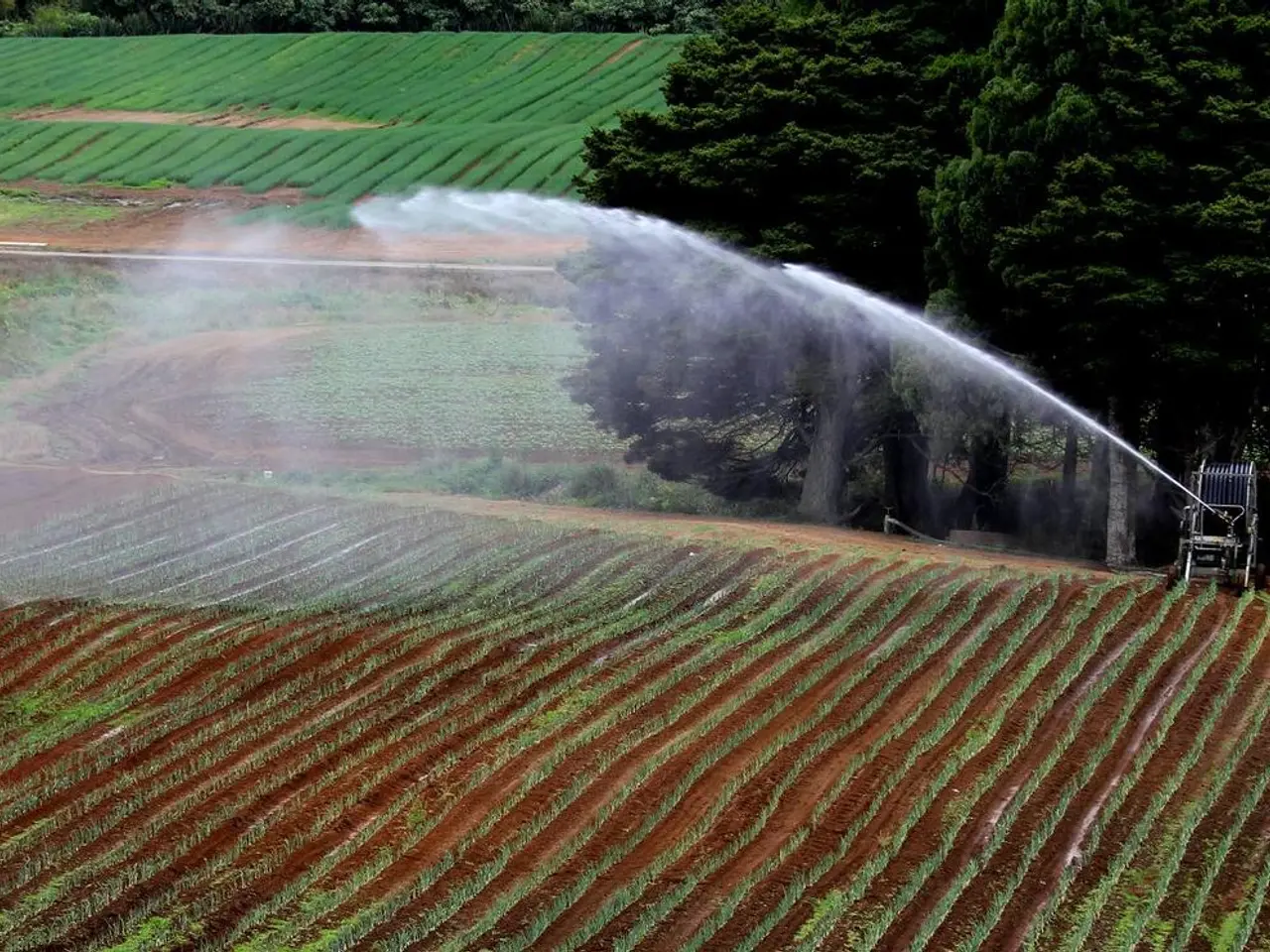Ensuring food safety via soil well-being
============================================================
India's agricultural landscape is undergoing a significant transformation, driven by a digital revolution that offers opportunities for optimising crop yields and strengthening farming communities across the country's diverse agro-climatic zones. This transformation is crucial as India faces challenges such as climate volatility, declining soil fertility, and water scarcity.
A science-driven, farmer-centric strategy is essential to address these challenges. Strategic focus areas include Integrated Nutrient Management (INM) and smart fertilization protocols. The South Region Pomegranate Growers Producer Company (SRPG FPO), a top-performing cooperative in Karnataka, has demonstrated how such scientific approaches can drive commercial success while improving sustainability outcomes. In just three years, the SRPG FPO increased its business volume fourfold between 2022 and 2024, and enhanced fruit quality through scientific crop nutrition and institutional capacity building.
Soil health is crucial for India. Around 40% of Indian soils are deficient in essential micronutrients like zinc and iron, which impact agricultural productivity and long-term nutrition security. Nutrient use efficiency has plummeted nearly 50% over five decades in India, with one kg of nitrogen, phosphorus, and potassium yielding merely 2.2 kg of grain today. This highlights the need for enhanced soil management and precision agriculture to optimise productivity levels, which remain 40-50% below global averages.
To achieve a sustainable future, India can adopt a multi-faceted approach. Key strategies include promoting organic and ecological farming, implementing precision nutrient management, adopting water-efficient irrigation methods, encouraging crop diversification and climate-resilient crops, integrating modern farming technologies and digital tools, fostering agroforestry and mixed cropping systems, and investing in renewable energy for agriculture.
Organic farming reduces chemical pesticide and fertilizer use, restores soil fertility, and enhances biodiversity. Precision nutrient management involves soil health monitoring and widespread availability of soil testing facilities, helping farmers apply balanced fertilizers and minimising nutrient deficiencies and preventing soil degradation. Water-efficient irrigation methods like drip and micro-irrigation, and restoring traditional water sources like ponds and check-dams, enhance groundwater recharge and reduce water stress in drought-prone regions.
Crop diversification and climate-resilient crops like millets, which require less water, grow well in poor soils, and provide nutritious food addressing malnutrition and iron-deficiency anemia, improve resilience against climate risks and reduce dependence on water-intensive monocultures like rice and wheat. Integrating modern farming technologies and digital tools can optimise input use, improve yield, and provide real-time advisories that enhance farmer income and reduce environmental impact.
Fostering agroforestry and mixed cropping systems combines trees and crops to sequester carbon, improve soil organic matter, control erosion, and enhance farm biodiversity, thereby strengthening ecological stability and resource use efficiency. Investing in renewable energy for agriculture, such as solar pumps and biogas plants, reduces carbon footprint and enhances sustainable agricultural intensification.
These measures, emphasised in current 2025 policy frameworks, are designed to safeguard natural resources, improve farmer livelihoods, reduce agriculture’s climate vulnerability, and ensure food and nutrition security for India's growing population. Successful local models, such as crop diversification in Ferozepur, demonstrate practical benefits to scaling these approaches for broader impact.
The agricultural sector is at an inflection point, and strategic investments in soil health, digital infrastructure, and farmer empowerment will determine India's ability to achieve responsible, sustainable food production for current and future generations. The 4R Nutrient Stewardship Model, a precision agriculture approach that optimises resource utilisation while minimising environmental impact, is a promising tool in this transformation.
India has already shown its potential, transitioning from a food-deficit nation to a net rice exporter, shipping 22 million metric tonnes in 2024-25. However, by 2025, the nutrient gap in India is projected to be deficient at about -50 mt, emphasising the need for precise nutrient management to maintain soil fertility and crop productivity.
The author of this article, Sanjiv Kanwar, is the managing director of Yara South Asia. He emphasises the need for a three-pronged approach for the agricultural sector's transformation: progressive policy frameworks, innovative product development addressing specific agronomic challenges, and farmer-centric solutions that promote environmental stewardship and profitability.
- The digital revolution in India's agricultural landscape offers opportunities to optimize crop yields and fortify farming communities across diverse agro-climatic zones, addressing challenges such as climate volatility and water scarcity.
- A science-driven, farmer-centric strategy is essential to tackle these challenges, with focus areas including Integrated Nutrient Management (INM) and smart fertilization protocols.
- Soil health is pivotal for India, where 40% of soils are deficient in essential micronutrients like zinc and iron, affecting agricultural productivity and long-term nutrition security.
- To achieve a sustainable future, India may adopt a multi-faceted approach that promotes organic farming, precision nutrient management, water-efficient irrigation methods, crop diversification, the integration of modern farming technologies, agroforestry, and investments in renewable energy for agriculture.
- Organic farming can restore soil fertility, reduce chemical pesticide and fertilizer use, and enhance biodiversity while easing the risk of climate impacts.
- Precision nutrient management can help farmers apply balanced fertilizers, minimise nutrient deficiencies, and prevent soil degradation through soil health monitoring and widespread availability of soil testing facilities.
- Crop diversification, including climate-resilient crops like millets, can improve resilience against climate risks, reduce dependence on water-intensive monocultures, and provide nutritious food addressing malnutrition.
- Integrating modern farming technologies and digital tools can optimize input use, improve yield, and offer real-time advisories to farmers, boosting profitability and reducing environmental impact.
- Fostering agroforestry and mixed cropping systems enhances ecological stability, resource use efficiency, and contributes to carbon sequestration while promoting farmers' livelihoods.




